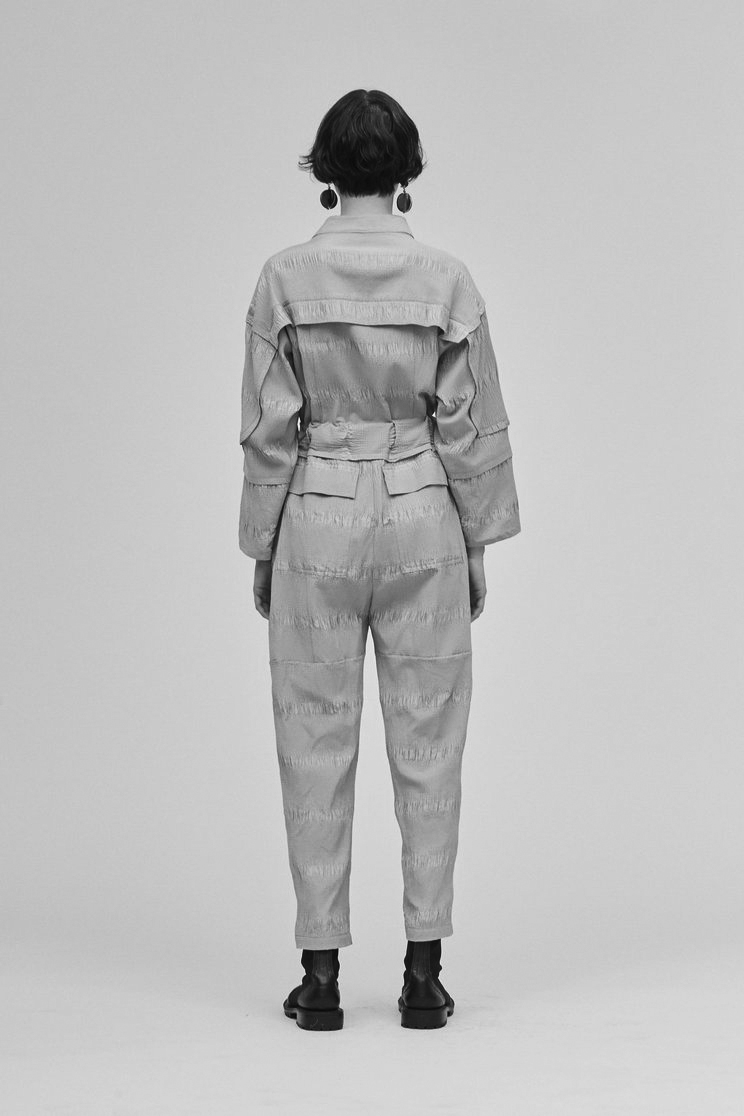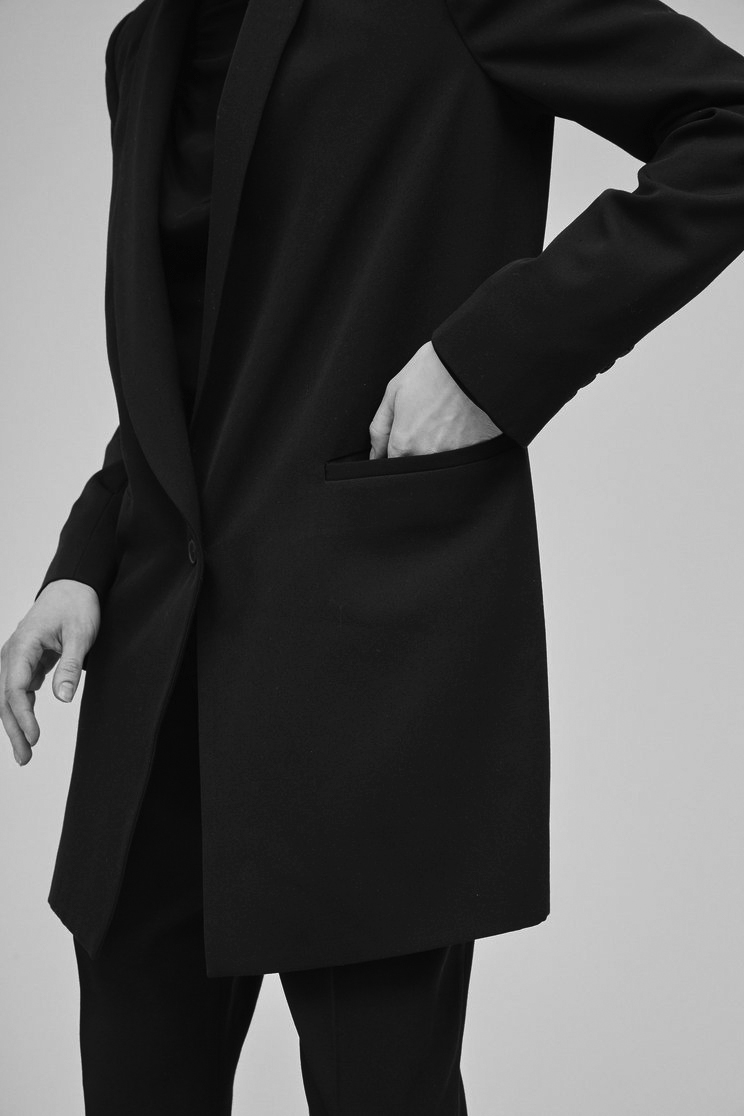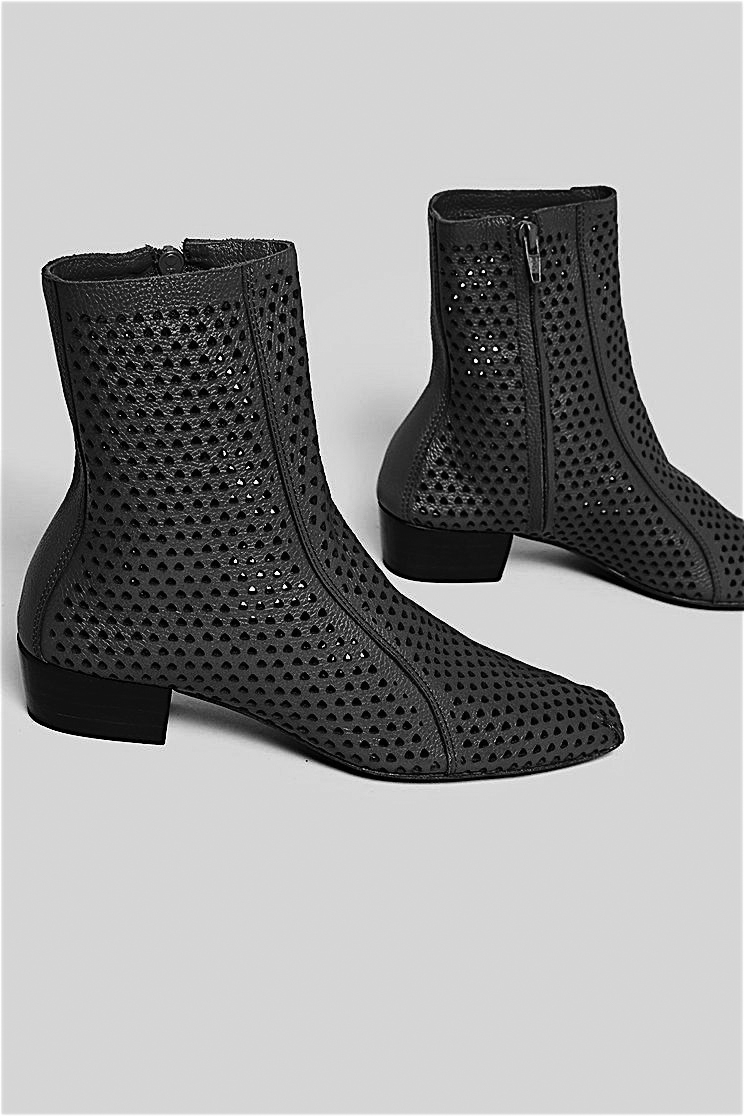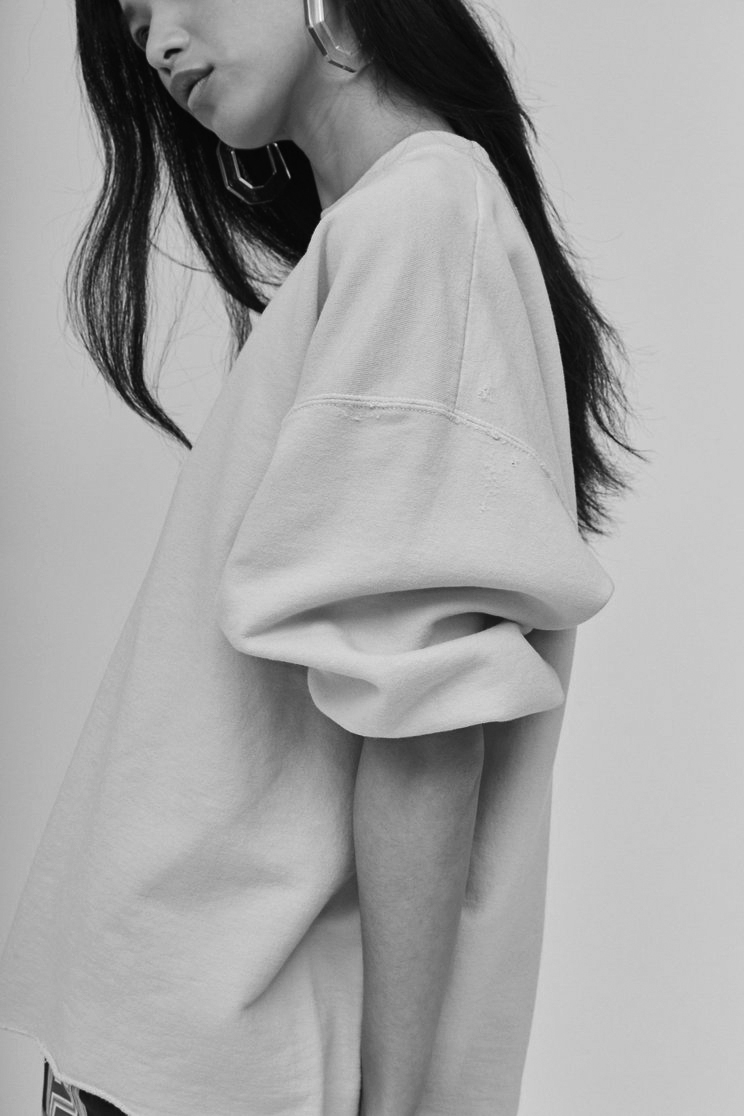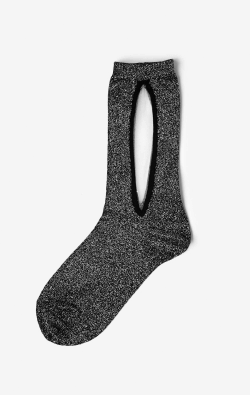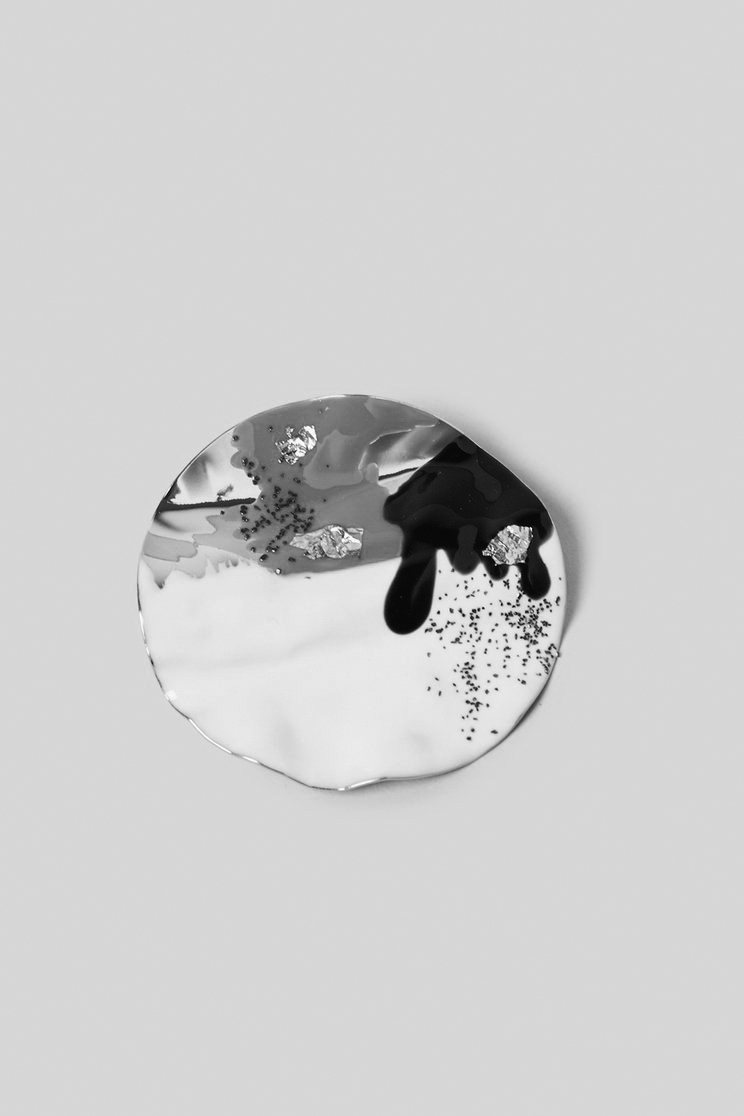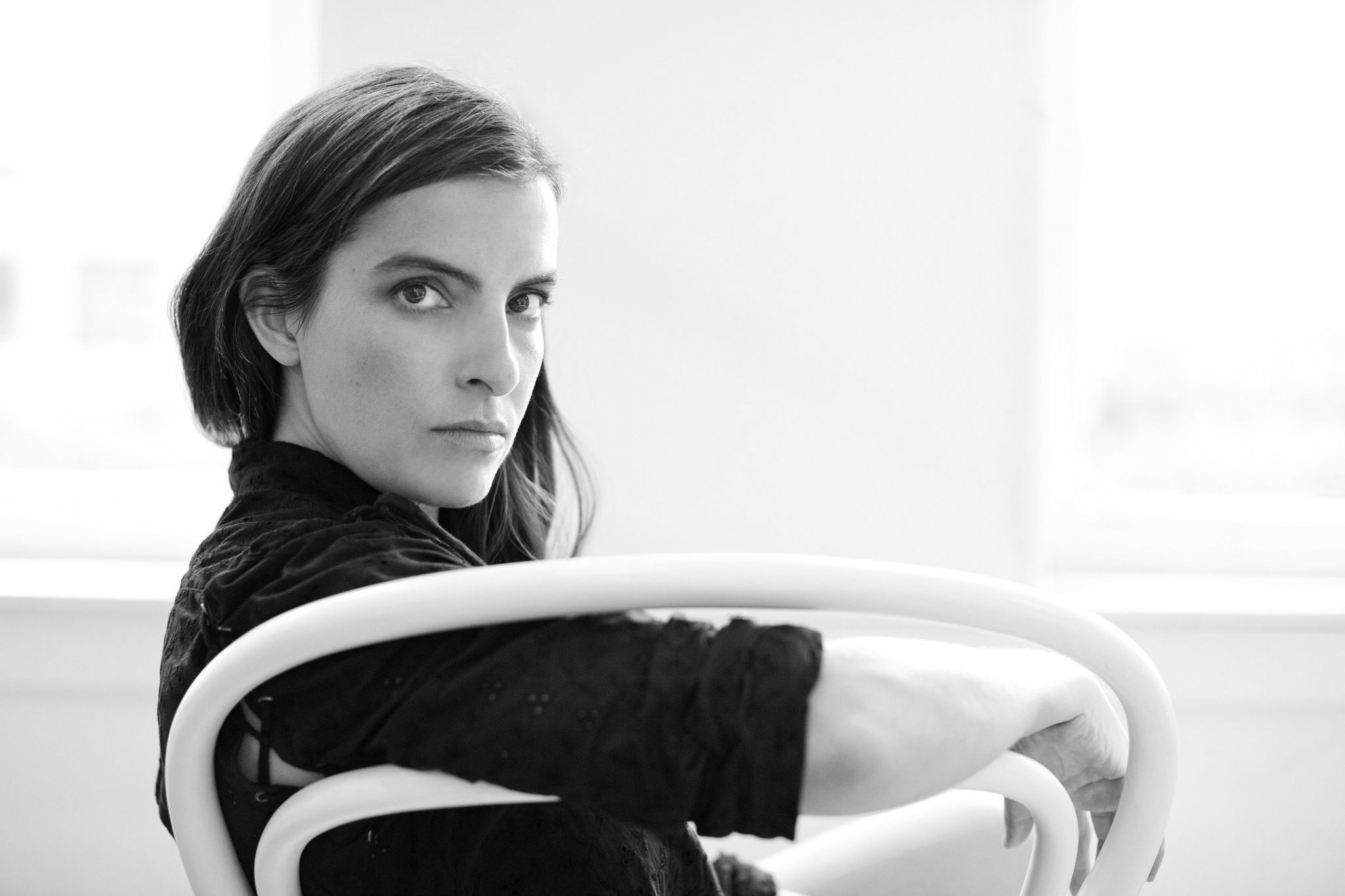
You have to get to the hurdles where you doubt yourself and want to give up and all that.
Rachel Comey
If you’re reading xtine, chances are high that you’re a Rachel Comey fan. Her clothes and accessories embody the “women dressing for women” approach, with fits and fabrics that telegraph confidence and a certain loopy creativity. As her company grows and gains popularity (we heard that Michelle Obama is now on the RC bandwagon), this former art student is learning to balance inspiration and administration — all while raising two kids a two-hour commute from NYC.
With all of the women in my life, I wonder, “How does she do it?” So I decided to start with Rachel for the inaugural Woman of Substance interview.
She joined me at the Wing Soho — not far from her HQ — to discuss creativity, responsibility, and her favorite podcasts.
X: Is designing something you always wanted to do, or did you stumble into it? It wasn’t what you studied.
RC: I think it was a process of elimination almost. I always loved self expression and how people carried themselves and communicated through how they dressed. I also loved art, I loved color, I loved materials, so I explored all different avenues for these different things. I would say I was less interested in the glamour-gown story that inspires a lot of people, although I’m starting to become interested in that.
I studied art and sculpture and liberal arts in general. I was 29 when I started my business, which my young staff holds close to their heart because they’re still thinking they need to have it all figured out by 25. I’m like, “Don’t worry about it.”
I did costume design, I worked in art galleries, I explored the idea of making art on my own, I worked at a graphic design firm. I did a whole bunch of different commercial arts and finally landed on [fashion].
But I was so naïve when I started my business, too. I didn’t explore it too thoroughly. An education would have been nice, I think.
Do you think that naïveté helped you?
I think so, yeah, for sure. I had to learn the hard way and I had to get used to that. It was six years of being in debt and failing before I kind of turned it around. That was unpleasant.
How did you get through those six years? What motivated and supported you?
Fear of failure. Learning. When you can learn from your mistakes, it’s better than school. Once I got out of school, I was ready to dive into things and try them. That helps.
How long has the company been around now?
I started in 2001, so 17 years.
Holy sh—how do you reconcile building something this substantial with what you originally set out to do after art school?
I don’t feel like it’s that substantial, but I feel like I’m still working on that.
You have employees who have health insurance.
That’s true. There’s a lot of responsibility that has grown in the past eight or ten years, especially as my employees have grown up. I have three or four employees that have been with me for ten years. When they started, they were right out of school, and now they’re at a different phase of their lives: They’re married, looking to buy houses, and children are on the horizon or coming already. And then I have my own family. All of those things feel like big responsibilities.
The creative job of running a company is different from being a designer. For me, after being an editor for fifteen years and then being an executive editor, I was like “Wait, I’m in meetings all day. I’m not making a magazine.” How do you reconcile those parts of you?
What attracted me to being an entrepreneur from the beginning is that there’s a lot of different challenges happening and you can move [between them]. Finding and addressing my own working process has really helped: I get three-quarters of the way through something and then I really can’t do the last quarter. I can’t do it. So I have to shift, then I can keep pivoting, and I’ll finally come back to get that last quarter done.
Plus, I’m a big talker and I have a great team, so they talk through things with me. We are always troubleshooting and brainstorming—at the same time. I can’t say that I’ve done it all on my own.
Do you still get to get your hands dirty in the design process?
Yes, for sure. I love that part, but I have some people on my team now that have more experience than I did. As I’ve gotten to this point in my career, it’s been great to able to turn to somebody with the experience in a technical part of a garment or an embellishment that I’ve never done before. This expertise brings a new level of creative exploration for me because I can achieve something more than I could do on my own.
Business-wise, what’s been the rudest shock or the hardest learning curve? And who have been the key hires to give you that support?
In the early days, my good friend Taisa Skulsky. Before I had any sales, really, I was in a showroom, and when I moved out [of the showroom], I almost totally went under. My friend Taisa came on and said, “Let me help you.” She worked with me and did my sales for ten years, and left the company just a year ago. She really took a chance and helped me grow. It was nice to have somebody believe in me and the work I was doing and believe we could sell it.
There have been other people who’ve been instrumental along the way in getting over hurdles along the way. My VP, Alex, that works with me now is helping to modernize our process with lots of back-end systems and stuff like that, so that’s really helpful.
What have you had to unlearn or stop doing in order to be successful?
You have to get to the hurdles where you doubt yourself and want to give up and all that. That’s hard, but that’s what’s great about fashion in a way: The deadlines are so intense that it forces you to just expose yourself. Expose your work. And if it’s not your best, then you have to move on and get through it and make it better. That’s helpful, versus being an artist or a writer where the deadlines are so much longer and you’re like, “This has to be the greatest thing I’ve ever done.”
I’m always interested in when people are creative during the day. As a writer, I have a window: I’m a morning person, and then I get another bump between 3 and 4.
I know that movement is really good for me, so it could be walking or driving. It could be hiking. If I get stuck, I know that that’s really useful, so I try to keep that in mind. Mornings for sure. In terms of designing clothes, if I can be present for the moment when I’m getting dressed instead of throwing something on and rushing out the door, then I can come up with a lot of stuff.
For what we do, I spend a lot of time listening to our customers and what their needs are. Ever since we opened the stores, I get a ton of info every day about the people who shop—so and so came in, and bought [a garment] for this, and she’s traveling here, and she’s got this speech to give. I use that info to get into her mind and what she needs, which feeds a lot of creative. I get those reports every night, and in the morning I read them, so that’s a really good time to think about how else can I service this customer and their experience.
As a mother and a boss, how do you protect those mornings?
Who knows?
I went to the Agnes Martin show at the Guggenheim with a friend who also has a child and her own business. We stumbled into the video room, and Martin talked about how she didn’t have a husband, didn’t have children, and was totally dedicated to her work. She was able to just get up and paint. My friend and I both burst into tears, and we cried all the way up the rotunda. How do you even protect that time for yourself?
Their childhood goes so fast, sometimes I think it doesn’t matter if you’re there all the time or if you’re not there. You’re never going to get enough of it. Sometimes after I go through a moment of working really hard for a week, when I see my kids I think whoa they just grew or something. Their hair is longer, did I just miss that?
But at this point in my career and in my life, I try to be very organized and carve out time for them. I don’t work on the weekends anymore. Okay, I do around showtime. Pre-children, though, I definitely was working 24/7 for awhile, but I don’t want that for my team. I do think it’s possible to not work 24/7 and be successful. It’s just being more efficient with your time. Even identifying when your creative time is is a huge step forward towards embracing that [efficiency] and being productive. If you think it’s just time, period, you can end up in this vortex of endless amounts of time trying to get something done, when really you need to step away and take a walk and see a friend or your kids or a show or whatever.
What are you like as a boss?
You can ask one of my employees that, but I feel like I am communicative, and I have high expectations for my staff, but I try to loop then into why I have high expectations. I hope that I’m fair and all of that.
What’s it like working with a bunch of millennials? After a year, they’re like, “I don’t know, maybe I want to be in a pastry shop or maybe I want go hiking.” It’s like, no, you work for 10 to 15 years, keep your head down, and maybe someday someone will notice you.
I’m trying to be open-minded to that point of view a little bit. Maybe we need a little bit more understanding of their values. Understanding the value of hard work and what you get when you work hard on something and you learn and you grow and you stay at it, that’s very rewarding, that’s important. There’s a lot of reward in your own hard work and creative process and developing. But I agree that on the other hand, there’s a lot of lifestyle things I don’t want to miss, either. How do we manage those things?
I was so impressed that around the Weinstein thing, some of the first people to really come out and vocalize were millennials. That started to affect other generations. That was great.
What do they refuse to learn from you?
I wouldn’t mind them learning a little bit of patience, some analytical thought before they jump into something, being prepared, some process things.
When I was asking people what questions they had for you, many just wanted to say wonderful things about you. One of the things that kept coming up that people were inspired by is that you have this brand that you’ve built, but you’re not this super intense face of the brand. Some of the women who go to your stores and buy your clothes don’t know what you look like. They didn’t know you had kids. How do you manage that in this day and age?
I don’t think this has to be about me, and I don’t want the brand to be about me personally. I do in that I want my company to grow and I want people to use the name of my company as synonymous with a certain type of product or quality. But I don’t want to be a brand.
The way that I look at it, I really look at [being a designer] as a behind-the- scenes, service role in a way. I’m thinking of the customers more than more than me.
You moved your family out of the city, about an hour upstate; you’re now a commuter. Tell me what you’ve gotten from it that you never would’ve if you’d stayed in Soho. And what have you given up?
Now I can go hiking and running in the woods before or after work, which is great. The commute is a little brutal, but I’m getting better at it. And before, when I lived five blocks from my studio, I was leaving for the studio early and leaving for home late. Now that my commute is an hour and 40 minutes each way, door to door, I have that time now to use somehow. That’s why I’m all-knowing about podcasts.
The concept of life-balance is a joke and I’m not sure who’s behind it and who’s selling it, but which plates tend to drop first when you’ve got work, family, you, friends, your inner life?
Things I wish I could do more would be reading or any type of self-care. Exercise. Hair, nails, skin, all that stuff. It comes down to work and family for me. I’m able to sneak in friend stuff, and luckily I work with a lot of people that I enjoy—that’s helpful. I’m glad we’re having lunch today.
What advice do you wish you’d gotten when you first started out?
I would’ve liked to have had some on-the-job experience somewhere, like a mentorship or internship. I don’t think I even knew what an internship was when I started out.
What advice now would you give to yourself then?
Get some experience so you can get some skills.
